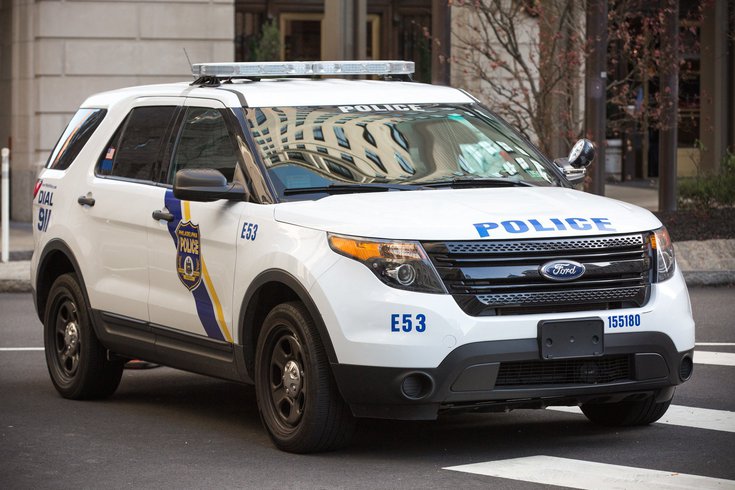
March 27, 2021
 Thom Carroll/for PhillyVoice
Thom Carroll/for PhillyVoice
The Philadelphia Police Department joined more than 35 police agencies across the country in committing to supporting and increasing the number of women in the police force by 2030.
The Philadelphia Police Department signed a national pledge this week to improve the representation and experiences of women in law enforcement, which research shows can improve trust in the community and lower the use of excessive force.
Nationally, women make up 12% of police officers and just 3% of police leadership. The 30X30 Pledge aims to to increase the number of women in new police recruit classes to 30% by 2030.
“Taking this pledge sends a strong message that our department is actively working toward improving the representation and experiences of women officers in Philadelphia,” said Philadelphia Police Commissioner Danielle Outlaw.
The PPD is proud to announce that we've joined the @30x30Initiative by signing the #30x30Pledge! We’re joining the movement to #advancewomeninpolicing and support the success of women officers in all ranks . Learn more here: https://t.co/dH7PcRHJUC pic.twitter.com/7O9jgdDhvp
— Philadelphia Police (@PhillyPolice) March 25, 2021
To date, women make up 22% of the Philadelphia Police Department's police officers, PPD spokesman Miguel Torres said in an email to PhillyVoice. There's a total of 6,304 officers in the department, with a total of 1,363 women.
“Although the PPD currently stands at 22% and is above the national average for female law enforcement officers, I believe we can still do better," Outlaw said. "Our Department is honored to be among the first in the nation to make this critical commitment, and we look forward to collaboration from agencies across the country who share our priority.”
More than 35 agencies across the country have taken the Pledge, including NYPD, American University PD and Seattle PD.
The 30X30 Pledge offers a phased plan that outlines low and no-cost actions police agencies can take, like conducting anonymous surveys of the women officers on the force and establishing a zero tolerance harassment policy.
After signing the pledge, police agencies will report how they are working to identify and address obstacles that women officers face throughout their careers through "progress reports." Participating agencies can share their findings with one another and develop programs and initiatives to remove those barriers.
Those that take the pledge are also required to address intersectionality — how someone's multiple identities like race, ethnicity, gender or sexual orientation can impact their exposure to discrimination.
"Women of color in particular will often face compounding experiences of bias and discrimination based not only on their gender, but also their race or ethnicity," according to the pledge. "Though 30×30 focuses on increasing the representation of women, it is critical that agencies apply an intersectional lens when analyzing their culture and practices to better promote the creation of a diverse and inclusive workplace for everyone."
Research shows that women police officers use less force and less excessive force, are named in fewer complaints and lawsuits, are seen by communities as more honest and compassionate, see better outcomes for crime victims and make fewer discretionary arrests.
An investigation out of CNN showed that female officers were involved in a smaller percentage of incidents than their share of the department in Cincinnati, Indianapolis, New Orleans and Orlando.
The national 30X30 team is made up of police leaders, policy makers, researchers and professional organizations and is affiliated with the Policing Project at the NYU School of Law and the National Association of Women Law Enforcement Executives.
“We believe strongly that advancing women in policing is critical to improving public safety outcomes," Maureen McGough, co-founder of the 30x30 Initiative, Chief of Staff of the Policing Project at the New York University School of Law, and former policing expert at the U.S. Department of Justice, said. "We look forward to having more agencies follow Philadelphia’s lead by signing the pledge and improving the representation and experiences of women in policing.”
Follow Hannah & PhillyVoice on Twitter: @hannah_kanik | @thePhillyVoice
Like us on Facebook: PhillyVoice
Add Hannah's RSS feed to your feed reader
Have a news tip? Let us know.